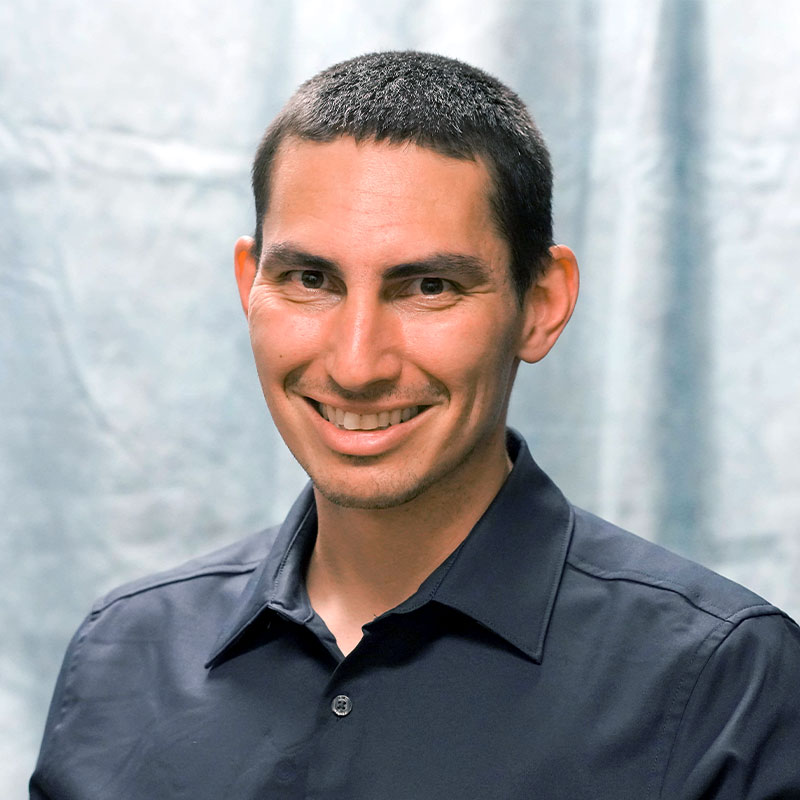“If you look across the country, there are maybe four or five known Native American statisticians. That certainly makes it difficult some days. But it also gives me the spark.”
Research is one of the best things you can do to make yourself a competitive graduate school candidate — and a better, more prepared scholar.
Quality undergraduate research experience strongly enhances your competitiveness for graduate school. Increase your likelihood of admission by seeking research opportunities at your home campus or other institutions.
Connect with faculty
Identify topics that interest you, then find faculty members at your campus who are conducting research in those areas. Department websites and faculty pages, where you can locate faculty members’ bios, curricula vitae (CVs) and most recent publications, are great starting points.
After reading their publications and familiarizing yourself with their work, contact professors to schedule a meeting. Share what interests you about their research, citing any particular publications, then follow up with a thoughtful idea or question.
After you’ve connected intellectually, express your interest in assisting on a current project. Provide a résumé or CV and be prepared to report on the skills and strengths that qualify you to join a research project. Be realistic about the number of hours you can commit without overextending yourself. And remain positive and persistent as you seek the right opportunity.
Apply early
Begin applying for research opportunities as early as your sophomore year. Research experience gives you a competitive advantage by demonstrating that you're capable of the type of study graduate school requires.
Some campuses offer structured research programs during the academic year in addition to summer programs, so learn about all the options your institution offers.
You may have to apply to several programs before you get an acceptance letter, so be persistent, and apply to all that match your qualifications and interests.
Find a summer research program
Many universities — including UC campuses — offer structured summer research programs in a variety of disciplines, including social sciences and humanities. Typically 8 to 10 weeks long, summer programs often combine faculty-mentored research, professional development workshops and GRE preparation. Host institutions typically cover expenses such as travel, housing and food (meals/resources to prepare/buy meals). Some also provide a stipend, since you will not be able to work while participating in the program.
In addition to building your skills, summer research gives you the chance to become familiar with institutions you may plan to apply to for graduate school. Apply widely to these programs, as you may find a great match in an institution you would not otherwise have considered. Deadlines vary, so start looking early and be prepared to submit your applications as early as December through early February.
Finally, investigate informal ways to gain research experience. You may be able to work under the guidance of a faculty member, even if the professor is not an official research program mentor. Some professors may be willing to supervise an independent research project. If a faculty member cannot accommodate you, ask him or her to suggest colleagues who may be seeking an undergraduate assistant.
Learn more about research programs offered at UC campuses
UC Berkeley
Office of Undergraduate Research and Scholarships
UC Davis
Undergraduate Research Center
Additional Research Information
UC Irvine
Undergraduate Research Opportunities Program
Summer Undergraduate Research Fellowship
Campus Wide Honors Collegium
Access to Careers in Engineering and Sciences (ACES)
Neuroscience Summer Institute
Office of Access and Inclusion
UCLA
Undergraduate Research Center - Sciences
Undergraduate Research Center - Humanities, Arts & Social Sciences
Summer Programs for Undergraduate Research
UC Merced
Undergraduate Research Opportunities Center
UC Riverside
Mentoring Summer Research Internship Program (MSRIP) Application Form
UC Leads
UC San Diego
Research Experience and Applied Learning Portal
Summer Research Program
UC San Francisco
Summer Research Training Program
PROPEL Post-baccalaureate Program
UC Santa Barbara
Undergraduate Research
UC Santa Cruz
Undergraduate Research Opportunities
Summer Research Opportunities
STEM Diversity Research Programs
Hispanic Serving Institutions Initiatives
Learn more about national research programs
Helpful tips
Reality check
Summer research programs are highly competitive, so apply to many different schools and programs — including your current institution. Don't worry about where you do your research ... just do it!
Stay in touch!
Once you've completed a research program, maintain connections with your research mentors, who will be able to write very strong letters of recommendation and support you throughout the process of getting into to graduate school. Check in regularly with your research mentors and provide updates about your academic progress.
